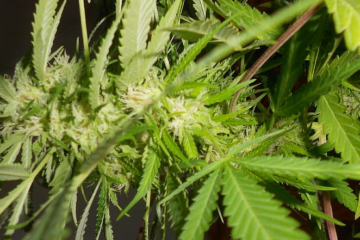In a groundbreaking shift from long-held beliefs, recent research suggests that recreational cannabis use may play a protective role against cognitive decline. This article explores the nuances of this discovery, shedding light on the potential implications for public health and personal wellness.
Rethinking Cannabis: The Study’s Findings
A study conducted by Upstate Medical University has turned the tables on our understanding of cannabis and cognitive health. Analyzing data from the CDC, researchers found that non-medical cannabis use was associated with a staggering 96% decrease in the odds of subjective cognitive decline (SCD) compared to non-users. This revelation challenges the traditional narrative surrounding cannabis, suggesting that its use could be more beneficial than previously thought.
The study’s focus on middle-aged and older adults is particularly noteworthy, as it highlights the potential for cannabis to serve as a preventative measure in an age group typically at risk for cognitive decline. The findings also suggest that the method and frequency of cannabis consumption do not significantly impact the likelihood of SCD, further complicating the cannabis-cognition relationship.

Implications for Cognitive Health Strategies
The implications of these findings are vast, with the potential to influence future public health strategies and individual lifestyle choices. If cannabis can indeed protect against cognitive decline, it may become a valuable tool in the arsenal against conditions like dementia and Alzheimer’s disease. However, researchers urge caution, emphasizing the need for longitudinal studies to confirm these initial observations.
The study’s results also raise questions about the role of cannabis legalization and societal attitudes towards its use. As cannabis becomes more widely accepted and available, understanding its long-term effects on cognitive health will be crucial for informing policy and personal decisions.
A New Perspective on Recreational Cannabis Use
This research invites a reevaluation of recreational cannabis use, particularly in the context of cognitive health. While the study does not advocate for unrestricted cannabis use, it opens the door to a more nuanced conversation about its risks and benefits. As we move forward, it will be essential to balance the potential cognitive advantages with a comprehensive understanding of cannabis’ effects on overall health.



